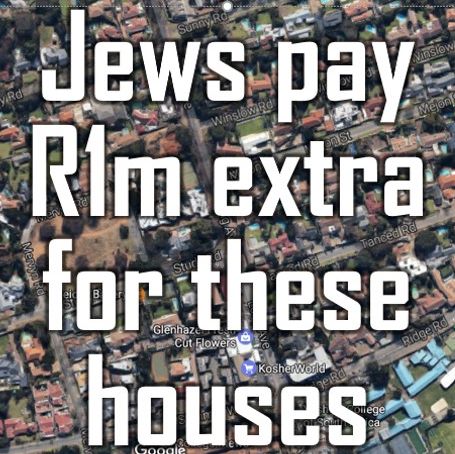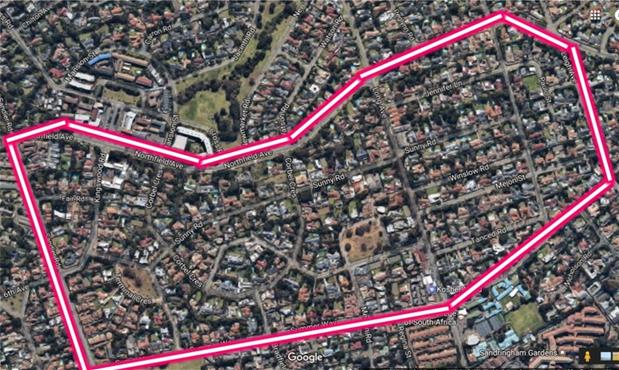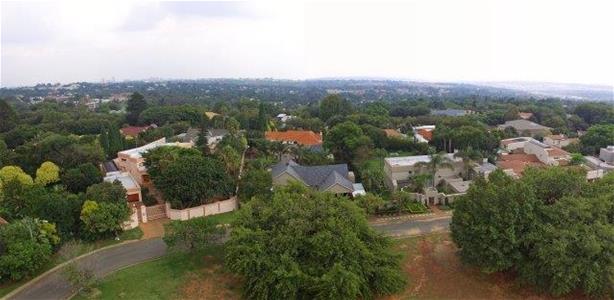click to dowload our latest edition
CLICK HERE TO SUBSCRIBE TO OUR NEWSLETTER


Published
7 years agoon
By
adminANT KATZ
Simply put, says Vered Estates’ Mike Rod, the answer is Yeshiva College, the Jewish community and social lifestyle. But, he adds, the market is cooling off somewhat at present due to the fact that many buyers, particularly those holding cash, are sitting on the fence and watching to see how the country’s economic and political stability pans out.
 Glenhazel, says Joel Harris of Jawitz Properties, “offers to the Jewish community a ‘Little Israel’ with so many kosher restaurants and shops”. The proliferation of the kosher establishments is “making it so sought after”. Big money has also gone into shuls and school campuses, he adds.
Glenhazel, says Joel Harris of Jawitz Properties, “offers to the Jewish community a ‘Little Israel’ with so many kosher restaurants and shops”. The proliferation of the kosher establishments is “making it so sought after”. Big money has also gone into shuls and school campuses, he adds.
Developer Daniel Rubenstein, whose grandfather was one of the original developers of the Glenhazel suburb, confirms that there is a premium price of 20 to 30 per cent, or around a million rand, for land in the core Glenhazel area.
RIGHT: Estate agent Joel Harris has a substantial 45 percent market share in Glenhazel
“A 2 000 square metre plot on which one would knock down the existing house and build a new one,” he told Jewish Report, would have a value of “R4 to R5,5 million in Glenhazel, depending on position and shape, whereas a comparable property in Melrose or Illovo would be priced at R3,8 to R4,8 million”.
Rod says about the market having cooled off: “Two years ago you could put a property up at any price and there would be a buyer.” Now it is taking him up to four months.
Another agent, who asked not to be named, agreed. But he said: “Money isn’t the issue. Sellers were asking for too much and buyers are concerned that interest rates are going to go up. Seller expectations are making it hard to buy.”

ABOVE: The sweet-spot – Jewish buyers pay a million rand-plus premium to live within these boundaries (ANT KATZ)
Rod’s experience indicates that “the sentiment in the country at the moment is causing people with cash to hold on to it.” He cited “the political situation and the lack of financial stability – they feed off each other”.
Add the instability within the ANC, he says, and people with cash “rather keep it offshore. People who would be buyers are staying liquid and waiting.”
One anonymous developer who is looking for a large property – between 1 500 to 2 000 square metres – in what he refers to as “the absolute prime” area says he has been offered many properties over the past few months. But in every case the seller wanted an “absolutely ridiculous price”.
For what he describes as a “bash-down” property, in other words the homestead will be demolished and a new home or sectional title development built, he says he can buy in Melrose for R4 million, “but in Glenhazel the sellers want R5 to R5,5 million”.
Rod mentioned a house in Fairmount that he listed on a Friday last winter. He had a potential buyer who he called to meet him there and on his way in, Rod planted a ‘for sale board’ outside. The client duly made an offer on the spot, a little under the asking price.
“While I was still inside the house,” says Rod, “someone saw the board, called me and we made an appointment to show it on the Sunday”. With the Friday offer in hand, Rod told the other interested party that they had better make a quick offer if they had a genuine interest. They put in a higher offer and, by Sunday evening, the house was sold.
But with the market cooling off, he has eight or 10 properties on his books at the moment, but there is a 20 per cent gap between what sellers want (an average of R4 million) and what buyers are prepared to pay (R3,2 million).
Harris recalls listing a house near the Yeshiva College campus in November 2016. “The next day I organised an open hour and invited nine buyers to view, achieved two offers, and closed within 24 hours within 10 per cent of the asking price.”
Another of his success stories was a property in Study Road. Again he organised an open hour, this time for 10 buyers. “I received three offers and also closed within 24 hours.
“What was interesting is that the three buyers (making offers) all had different intentions. The one was going to knock the house down and build their dream home; the second was going to ‘gut’ the property and spend approximately R3 million renovating it; and the third was going to give it a paint job and some small cosmetic changes and move in.”
The only spark in the market right now is the demand for cluster housing, says Rod. A family with a reasonably high monthly income of R100 000 simply can’t afford Glenhazel today.
Harris says he holds the record price for sales for a cluster in Glenhazel – a whopping R10,1 million, back in 2011.
Prime property that fetches the highest prices are in Tanced Road and Mejon Avenue, says Rod, where three-bedroom houses on a 1 500 square metre plots can go for up to R4,5 million. They would not be considered to be worth even R3.9 million elsewhere, he says, but buyers pay the premium for the proximity to the area’s biggest single drawcard, Yeshiva College.
The lifestyle and communal living that attracts buyers, he says, is not to be found anywhere else. In any other suburb, says Rod, one may see one’s neighbours once a month and may never go inside their homes.

A drone picture illustrating typical Glenhazel homes (ILAN OSSENDRYVER)
In Glenhazel, if you eat a Shabbos meal alone with your family it is because you choose to.
A developer who asked not to be named, said that Glenhazel had become “unaffordable for young couples”. Rod says that, while sales have certainly slowed down, the demand is still there for the lower end of the market and at more reasonable prices.
Asked if heavily bonded buyers are able to get banks to see the premium value in these properties which are selling at as much as R1 million above similar houses elsewhere, Rod says: “Banks are quite clever; they will often back the jockey.”
Emerging in between this very small number of highly sought-after homes over the past few years has been an ever-increasing number of kosher businesses – and businesses that service the needs of the Jewish market. Even office space in this unique “shtetl” goes at a huge premium, if one can find premises.
Harris has the final word: “I think the choice for the observant Jewish community is Glenhazel vs Ra’anana!”

Sylvia
Feb 10, 2017 at 6:17 am
‘You cannot compare Ra’anana with Glenhazel.
The latter is an overpriced ghetto in a crime infested city with no hope of improvement
The former is a scintillating city with great facilities and low crime,obviating the need for security gates and guards
‘
Harold
Feb 10, 2017 at 7:51 am
‘Hi Ben,
For your info.
Dad’